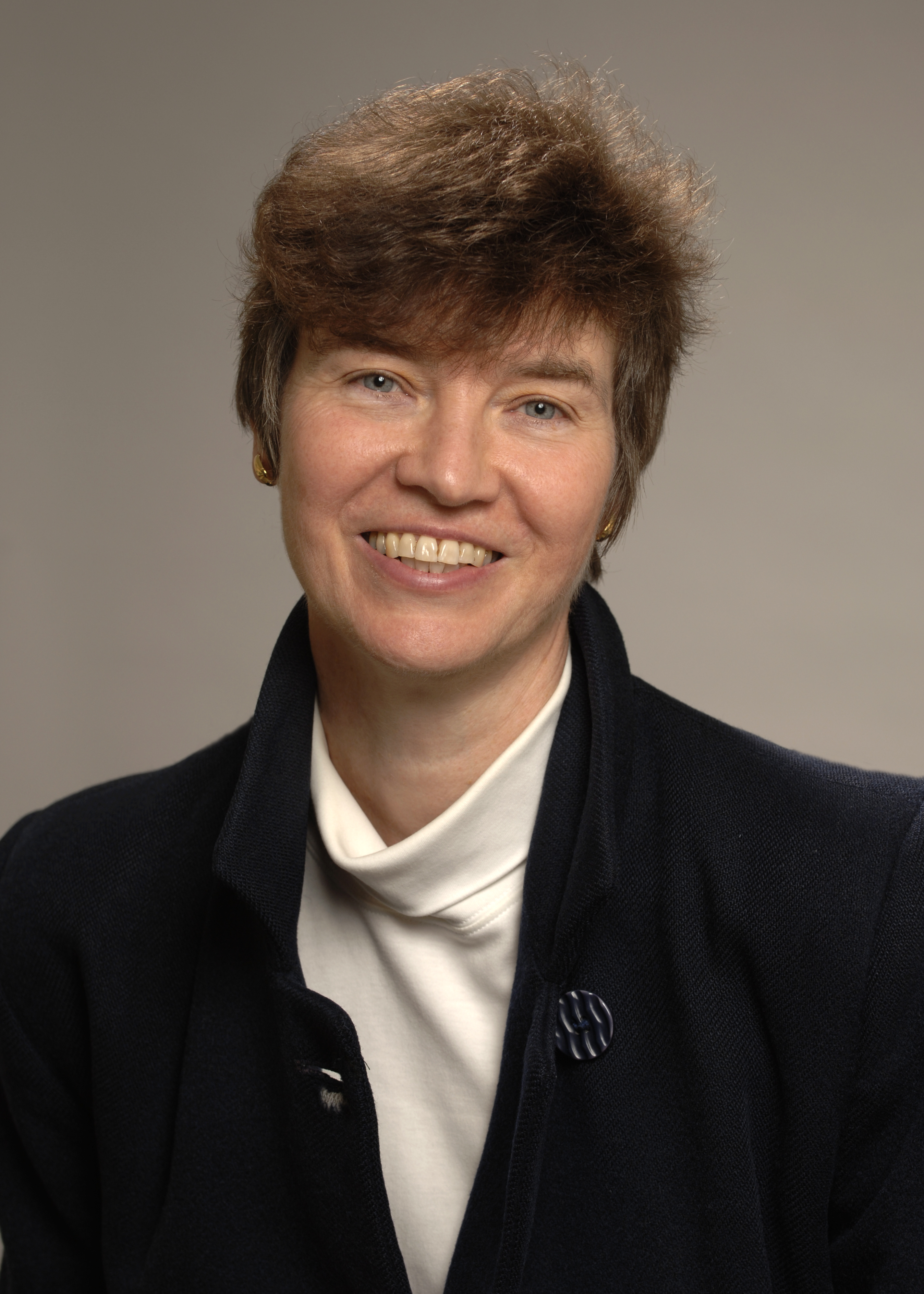Margaret O’Gara (1947-2012)

Margaret O’Gara was born in Chicago in 1947. The vigorous Christian commitment she eventually developed owed much to her parents. Joan Smith and James O’Gara first met in a discussion group organized by the Catholic Worker movement. Not long after they married and Margaret and her younger sister Monica were born, the family moved to New York where James served as managing editor and then editor of Commonweal magazine, a lay Catholic journal of opinion, for more than three decades.
Her familial milieu oriented Margaret quite early not just to devout Christian living but also to thoughtful reflection on that living, namely, doing theology. Social justice, church reform, and interreligious collaboration were common topics of conversation around the dinner table. Frequent visitors enlivened the discussions. And James O’Gara was the Commonweal correspondent in Rome for the first and third sessions of the Second Vatican Council.
Margaret’s early orientation was enriched by formal theological learning during her undergraduate studies at Trinity College in Washington, DC, master’s studies at Yale Divinity School, and doctoral studies in the Faculty of Theology at the University of St. Michael’s College, Toronto. Toward the end of her doctoral program she was hired by St. Michael’s, and she happily taught systematics in the Faculty of Theology for the next 36 years, until her death in 2012.
It was during her time at Yale that Margaret chose ecumenical theology as her primary focus. The topic of her doctoral dissertation at St. Michael’s was the ecumenically neuralgic issue of papal infallibility. Her offerings in systematics would eventually include several courses explicitly devoted wholly or in part to ecumenical themes, and ecumenical issues and insights influenced her other courses as well.
Like most theology professors, Margaret accepted invitations to service in the wider community beyond her own institution. Besides extensive public lecturing, she played an active role in several academic and ecclesial organizations and enterprises, especially those with an ecumenical dimension. She served as president of the North American Academy of Ecumenists (1987-89) and the Catholic Theological Society of America (2007-2008). She was a member of the Toronto Archdiocesan Ecumenical Commission (1988-2012). She was a board member of the Collegeville Institute for Ecumenical and Cultural Research (1990-2012). She was the anglophone theological advisor to the delegation from the Canadian Conference of Catholic Bishops at the World Synod of Bishops (2001).
Perhaps most importantly, however, Margaret served on five official national or international dialogues between the Roman Catholic Church and other churches: the Anglican-Roman Catholic Dialogue of Canada (1976-93); the Disciples of Christ-Roman Catholic International Commission for Dialogue (1983-2012); the U.S. Lutheran-Roman Catholic Dialogue (1994-2012); the Lutheran-Roman Catholic International Commission for Unity (1995-2007); and the Evangelical-Roman Catholic Dialogue of Canada (2008-2012). She also was an early member of Bridgefolk, a North American organization for dialogue between Roman Catholics and Mennonites (2002-2012).
Margaret’s participation in one dialogue commonly both facilitated and enriched her contributions to the others on which she served. More broadly, her involvement in dialogues enhanced her teaching and supervision, and vice-versa. Still more broadly, her skill, commitment, and enthusiasm as teacher, supervisor, and dialogue participant inspired a good number of her students to commit themselves to becoming part of the next generation of ecumenists. Both in Canada and beyond, those former students now are teachers, members of dialogues, and other kinds of ecumenical specialists in their own right.
Margaret O’Gara est née à Chicago en 1947. Le vigoureux engagement chrétien auquel elle est parvenue doit beaucoup à ses parents. Joan Smith et James O’Gara se sont d’abord rencontrés dans un groupe de discussion organisé par le Mouvement catholique ouvrier. Peu de temps après qu’ils se soient mariés et que soient nées Margaret et sa jeune sœur Monica, la famille est déménagée à New York où James a été directeur de la rédaction, puis éditeur de la revue Commonweal, un journal d’opinion catholique, pendant plus de trois décennies.
Le milieu familial de Margaret l’a très tôt orientée non seulement vers une vie chrétienne pieuse, mais également en direction d’une réflexion approfondie concernant cette vie, c’est-à-dire à faire de la théologie. La justice sociale, la réforme ecclésiale et la collaboration interreligieuse étaient des sujets courants de conversation autour de la table. De fréquents visiteurs animaient les discussions. Et James O’Gara a été le correspondant du Commonweal à Rome lors de la première et de la troisième sessions du Concile Vatican II.
L’orientation initiale de Margaret s’est trouvée enrichie par un apprentissage formel de la théologie lors de ses études de premier cycle au Trinity College de Washington, DC, de maîtrise à la Divinity School de l’Université Yale et de doctorat à la Faculté de théologie de l’Université St. Michael’s College de Toronto. Vers la fin de son programme de doctorat, elle a été embauchée par l’Université St. Michael’s College et a volontiers enseigné la théologie systématique à la Faculté de théologie les 36 années subséquentes jusqu’à son décès en 2012.
C’est au cours de ses études à l’Université Yale que Margaret a choisi de mettre principalement l’accent sur la théologie œcuménique. Le sujet de sa thèse de doctorat à l’Université St. Michael’s College a été la question névralgique œcuménique de l’infaillibilité papale. Ses contributions en matière de théologie systématique comprendront ultérieurement plusieurs cours explicitement consacrés, en tout ou en partie, à des thèmes œcuméniques, tout comme d’autres de ses cours porteront la marque de questions et vues œcuméniques.
Comme d’autres professeurs de théologie, Margaret a accepté des invitations à œuvrer auprès de la communauté élargie bien au-delà de son institution. Outre ses nombreuses conférences publiques, elle a joué un rôle actif au sein de plusieurs organisations et entreprises académiques et ecclésiales, plus particulièrement celles comportant une dimension œcuménique. Elle a été présidente de l’Académie nord-américaine des œcuménistes (1987-89) et de la Catholic Theological Society of America (2007-2008). Elle a été membre de la Commission œcuménique archidiocésaine de Toronto (1988-2012). Elle a été membre du conseil d’administration du Collegeville Institute pour la recherche culturelle et œcuménique (1990-2012). Elle a été la conseillère anglophone en théologie pour la délégation de la Conférence canadienne des évêques catholiques lors du Synode international des évêques (2001).
Toutefois, et c’est peut-être le point le plus important, Margaret a pris part à cinq dialogues officiels, au niveau national ou international, entre l’Église catholique romaine et d’autres églises : le Dialogue anglican-catholique romain du Canada (1976-93); la Commission internationale pour le dialogue Disciples du Christ-Église catholique romaine (1983-2012); le Dialogue luthérien-catholique romain des États-Unis (1994-2012); la Commission internationale luthérienne-catholique romaine sur l’unité (1995-2007); le Dialogue évangélique-catholique romain du Canada (2008-2012). Elle a aussi été l’une des premiers membres de Bridgefolk, une organisation nord-américaine de dialogue entre les Catholiques romains et les Mennonites (2002-2012).
La participation de Margaret à un dialogue a le plus souvent facilité et enrichi ses contributions aux autres dialogues auxquels elle a participé. De manière plus générale, son implication dans les dialogues lui a permis d’améliorer son enseignement et sa supervision, et vice-versa. Plus encore, ses compétences, son engagement et son enthousiasme en tant qu’enseignante, superviseure et participante à des dialogues ont incité un bon nombre de ses étudiants à s’engager à faire partie de la génération d’œcuménistes ultérieure. Tant au Canada qu’ailleurs, ces anciens étudiants sont eux-mêmes aujourd’hui des enseignants, des membres de dialogues et d’autres sortes de spécialistes œcuméniques.






